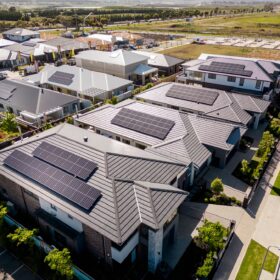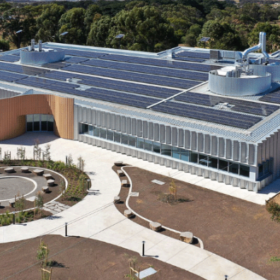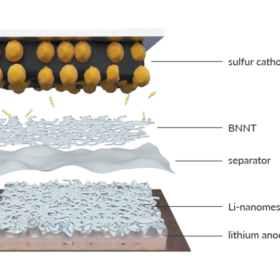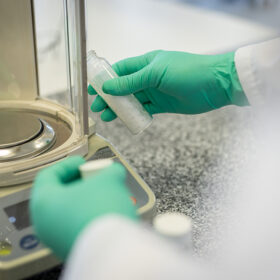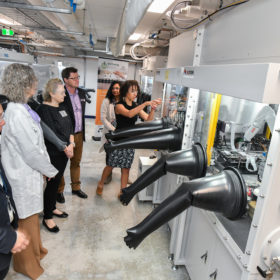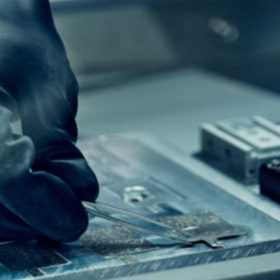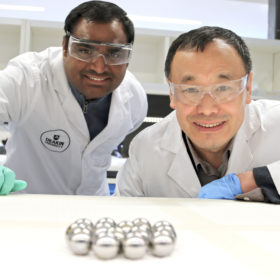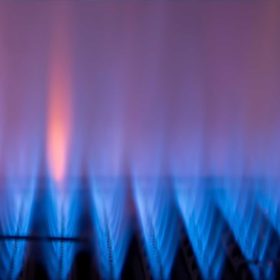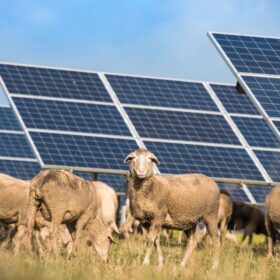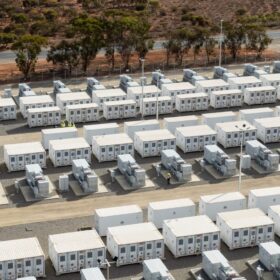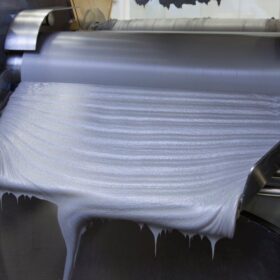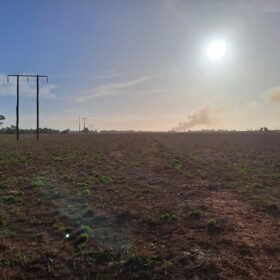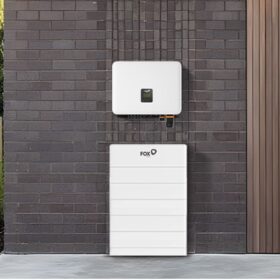Trial to help shape commercial future of time-matched energy
Success in the energy transition will come down to renewable hardware and software technology, but that won’t be enough in itself. How we design, package, and deliver clean power is going to be every bit as important.
Deakin puts peer-to-peer trading of excess solar to test
Researchers at Deakin University have launched a first-of-its-kind project exploring how Australian households and small businesses with solar and or battery systems can sell their excess clean energy to others without the technology.
Aviation hydrogen fuel cell research takes to the sky with strategic partnership
The hunt for higher-performance hydrogen fuel cells for aviation has resulted in a research partnership between Australian aerospace company AMSL Aero and Deakin University’s hydrogen hub, Hycel.
Australian startup reveals 20-layer battery cell based on semi-solid li-sulfur technology
Brisbane-based Li-S Energy has developed a 20-layer battery cell utilising semi-solid state lithium sulfur battery technology. The company claims the new cell displays nearly double the gravimetric energy density and a comparable volumetric energy density to lithium-ion cells.
Brisbane company launch lithium-sulfur cells with half weight of lithium-ion batteries
Brisbane company Li-S Energy has developed its third-generation semi-solid state lithium sulfur battery cells. The 20-layer cells, produced in its facility in Victoria, are lightweight and energy dense, reaching over 400 Wh/kg.
Scientists source silicon from solar waste to build better batteries
Researchers from Victoria’s Deakin University say they have successfully tested a new process that can safely and effectively extract silicon from end-of-life solar panels, then convert it into a nano material worth more than $45,000 (USD 31,500) per kilogram that can be used to build better batteries.
Victorian university opens ‘advanced’ battery hub for testing and manufacture
Victoria’s Deakin University today launched its $10.3 million (USD 6.5 million) “world-class” facility for advanced battery design, fabrication and testing, in Burwood, a suburb in Melbourne’s east.
New research shifts sodium batteries from risky liquid to safe solid
Researchers from Deakin University in Victoria have announced a breakthrough in the development of new polymer electrolyte chemistries that they believe could pave the way for a safer and cheaper alternative to current lithium-ion battery energy storage technologies.
‘Entirely novel’ mechanochemical breakthrough for storing hydrogen
Researchers at Melbourne’s Deakin University have discovered a novel way to separate, store and transport large amounts of gas. The method, they say, is efficient, affordable and creates no waste – carrying huge implications for the burgeoning green hydrogen industry and for the energy transition at large.
Why did gas prices go from $10 a gigajoule to $800 a gigajoule? An expert on the energy crisis engulfing Australia
Australia’s east coast has been plunged into an energy crisis just as winter takes hold, which will see many people struggle to heat their homes due to soaring gas bills.
